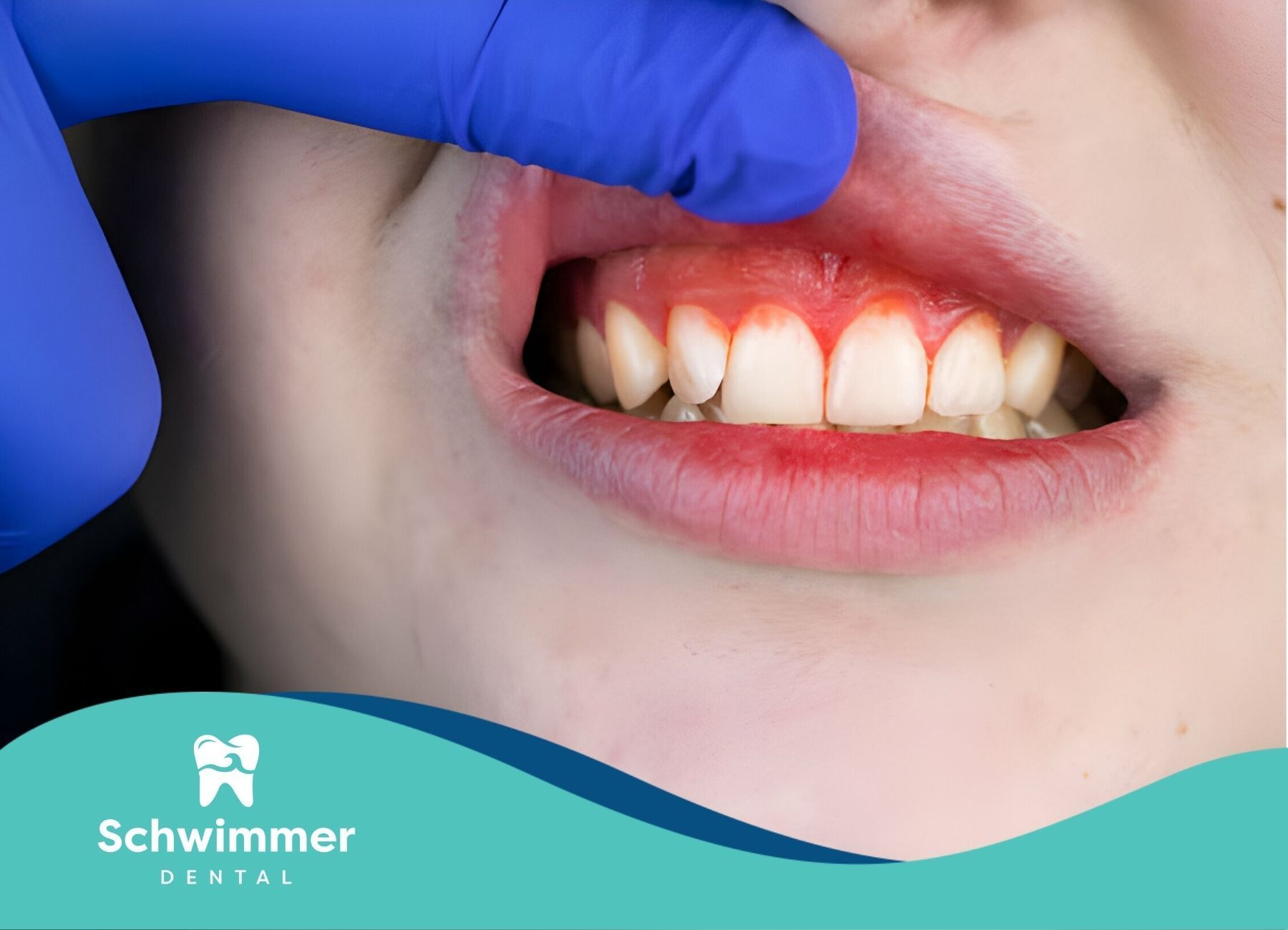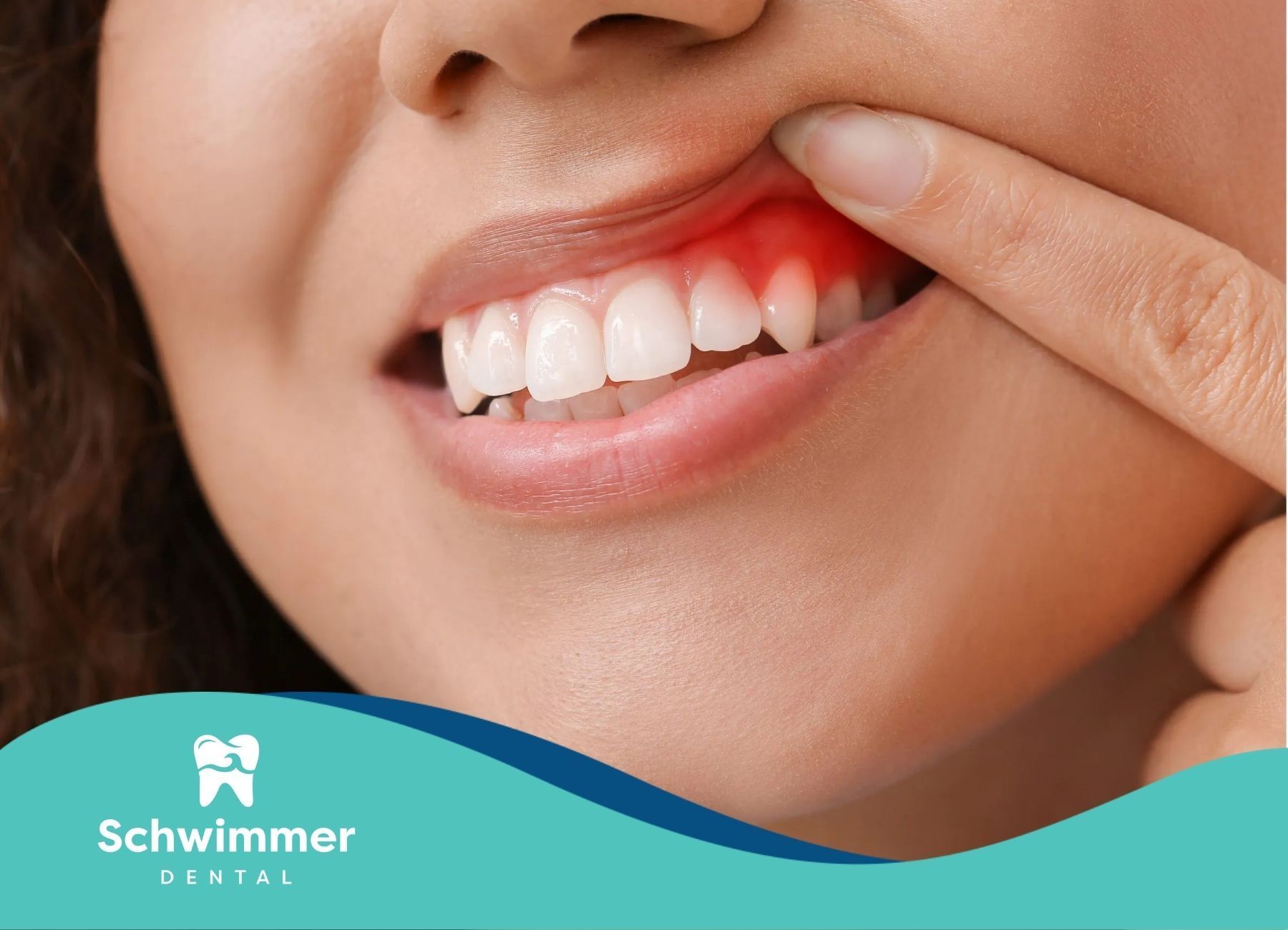Have an appointment? Complete the Intake Form
Signs of Poor Oral Hygiene: Symptoms & Solutions
When considering our health, we often pay attention to diet, exercise, and sleep. But we usually forget about oral hygiene. Keeping your mouth clean is very important. Not taking care of your teeth can lead to bad breath and cavities. It can also affect your overall health. Poor oral hygiene can raise your chances of health problems, like heart disease and diabetes. The link between oral health and the rest of the body is clear.
Recognizing the Warning Signs of Poor Oral Hygiene
Understanding the
signs of poor oral hygiene is crucial for keeping your mouth and body healthy. If you ignore these warning signs, you might face bigger dental problems later. One of the best ways to take care of your teeth is to notice what is happening in your mouth.
Are your gums bleeding when you brush or floss? Do you have bad breath that won't go away? These might be signs that you need to improve your oral hygiene routine.
Visible Plaque and Tartar Accumulation
Plaque is a sticky layer of bacteria that forms on your teeth. If you don't remove it by brushing and flossing, it can turn into tartar.
Tartar is a yellowish build-up along your gum line. Having a lot of plaque is a clear sign of poor oral hygiene, and it can harm your oral health.
As plaque builds up, it makes acids that attack your tooth enamel. The tooth enamel is the hard shield that protects your teeth. When the enamel gets weakened by the acid, it can create small holes and spots that lead to cavities.
Also, plaque along the gum line can make your gums upset. This can cause inflammation, redness, and bleeding. This problem is called gingivitis, and it is the first stage of gum disease.
Persistent Bad Breath and Its Underlying Causes
Bad breath, known as halitosis, is often a clear sign of poor oral hygiene. Many things can cause bad breath, but the main reason is too many oral bacteria. These bacteria grow by feeding on food stuck between your teeth, on your tongue, and in the small spaces of your mouth. They produce smelly sulfur compounds.
If you skip regular brushing and flossing, you make a perfect place for these bad-smelling bacteria. They eat leftover food, which leads to more sulfur compounds and worse breath.
Some health issues, like dry mouth, can make bad breath worse. Saliva helps clean away food and bacteria. If you have less saliva, your mouth can become dry. This can lead to more odor-causing bacteria.
The Impact of Neglected Oral Health on Overall Well-being
Neglecting your oral health can have effects that go beyond your mouth. Recent studies show a strong connection between poor oral health and a higher chance of getting many diseases. The inflammation and germs in your mouth can enter your blood and affect other areas of your body.
Conditions like heart disease, diabetes, rheumatoid arthritis, and problems during pregnancy can be linked to oral health. That's why taking care of your mouth is important for your overall health.
Linking Gum Disease to Cardiovascular Risks
Gum disease, also called periodontal disease, is a long-term issue that affects the tissues around your teeth. It mainly happens because of plaque buildup. If you do not treat it, it can seriously harm your heart health.
The connection between gum disease and heart disease is due to the inflammation caused by oral bacteria. When your gums swell, these bacteria can enter your bloodstream. They can then travel to other areas of your body, including your heart.
This may cause swelling in the blood vessels, raising your chances of a heart attack, stroke, and other heart issues. We still need more research to fully understand this link. However, keeping up with good oral hygiene is important for lowering your overall heart risks.
How Oral Infections Can Lead to More Serious Health Issues
The mouth is the entry point to your body. If you do not take care of your oral hygiene, it can turn into a home for harmful bacteria. These bacteria can enter your bloodstream through swollen gums and move to other areas of your body. This can raise the chance of serious health problems.
For example, oral infections can increase the risk of respiratory infections, like pneumonia. Bacteria from your mouth may get inhaled into the lungs, especially in people with weak immune systems or existing lung issues. Also, studies have found a link between poor oral health and a higher risk of some systemic diseases. This includes diabetes, rheumatoid arthritis, and even some cancers.
While more studies are needed to prove some links clearly, taking care of your oral hygiene is very important. It can help lower the overall risk of facing these serious health conditions.
Practical Solutions for Improving Oral Health
The good news is that you can
improve your oral health easily. You don't need complicated or time-consuming steps. Just adding a few simple habits to your daily routine can greatly boost your oral hygiene. This means a healthier mouth and body for you.
It all begins with sticking to a good oral hygiene routine. This is the key to good oral health. When you pair this routine with regular dental visits, you can avoid most dental problems before they even start.
The Importance of Regular Dental Check-ups and Cleanings
Regular dental check-ups and cleanings are very important for good oral health. The American Dental Association says you should visit your dentist at least twice a year for preventative care. During these visits, your dentist will look at your mouth carefully for signs of tooth decay, gum disease, or other oral health problems.
Professional cleanings are also important. They take away plaque and tartar that can be hard to remove just by brushing and flossing at home. Your dentist will use special tools to clean your teeth above and below the gum line. This helps keep your mouth free from harmful bacteria.
These regular visits help your dentist find any potential issues early. It is easier and cheaper to treat problems when they are small. Catching and treating these problems early can stop minor issues from becoming major ones. This saves you time, money, and discomfort later.
Effective At-Home Oral Hygiene Practices
Good oral hygiene begins at home, even though regular dental visits are very important. By following a simple and steady oral care routine, you can stop many dental issues from happening. Here are some key points to remember:
- Brushing: You should brush your teeth at least two times a day. Use fluoride toothpaste and a soft-bristled toothbrush. Brush for two minutes each time and cover all sides of your teeth.
- Flossing: Flossing every day is very important. It helps get rid of plaque and food stuck between your teeth that your toothbrush cannot reach. Use a gentle back-and-forth motion to slide the floss between your teeth and curve it around the base of each tooth.
- Mouthwash: Rinsing with mouthwash can help kill germs and keep your breath fresh. Pick an alcohol-free mouthwash to prevent your mouth from drying out.
Finding a good oral hygiene routine can help you avoid dental problems and makes your smile shine bright.
Conclusion
Good oral hygiene is very important for your overall health. If you have visible plaque or bad breath, these signs of poor oral health can lead to serious problems if you ignore them. To stop oral health issues, make sure to have regular dental check-ups, practice proper oral hygiene, and eat a healthy diet. Your oral health shows how you feel overall. If you are worried or need help with your oral health, book a check-up with your dentist. Your smile and health deserve the best care possible.
At Schwimmer Dental, we believe in proactive oral health. We offer comprehensive dental care in New Jersey, including early detection and treatment of poor oral hygiene. Our experienced team can help you identify and address any issues, such as gum disease, tooth decay, and bad breath. Schedule a consultation today and let us help you achieve and maintain a healthy, beautiful smile.
Frequently Asked Questions
How often should I replace my toothbrush?
To keep your dental health in good shape, you should change your toothbrush every three to four months. If the bristles get worn down, replace it even sooner. A worn toothbrush cannot clean plaque well and may collect bacteria. This can lead to dental problems. Good oral care means using a toothbrush that is in good condition.
Can diet affect my oral health?
A diet full of sugary and acidic foods can cause tooth decay and problems with your oral health. Keeping your blood sugar levels steady with a balanced diet is important to prevent gum disease. What you eat impacts not only your teeth but also your general health.
Need Assistance? We’re Here to Help
We are dedicated to enhancing your dental health and well-being.
We provide personalized dental care solutions for a confident, healthy smile.
Contact us today for Professional Dental Care.

Our caring staff will help you feel relaxed and comfortable in our state of the art office. We respect your time and pledge to deliver prompt service, backed by the latest knowledge, techniques, and technology.
Email: Office@schwimmerdental.com
Tel: (848) 294-2385
Fax: (732) 899-3347
Address: 1115 Arnold Ave,
Point Pleasant, NJ, 08742
Schwimmer Dental – Website by CWS


